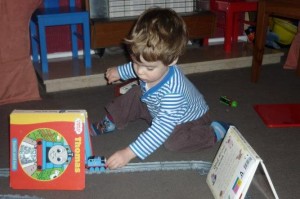None of us likes to be interrupted in the middle of an important conversation. I remember a moment like that when 3 of us were having a discussion and a 4th came in, striding up to our group.
“Hi, guys,” she said, disrupting the flow of ideas and forcing a subject change. It was the perfect example of being on two different wave lengths, and we stared at her while mentally trying to switch gears. We never got to finish the first conversation, and I fought resentment about that for a long time.
This morning in church our pastoral intern gave a thought-provoking sermon about the transfiguration. Stirred to learn more, I went home and studied the accounts told in 3 of the 4 Gospels.
On one side of the equation were Peter, James and John. On the other, Jesus, Moses and Elijah. The 3 disciples apparently recognized these Old Testament saints, in itself a miracle, and cautiously approached the 3 other-worldly conversationalists as a discussion was already in progress. Scripture doesn’t say if they overheard the words, but it does tell us what was being talked about: Jesus’ upcoming departure from the earth.
This was, most likely, an animated dialogue. Moses and Elijah might have been expressing joy in learning their Savior would soon be returning to paradise (where they lived), after 33 years as a human. Or maybe they were getting information about the upcoming crucifixion, mourning over the suffering Jesus might have been describing. Or they might have been learning of the resurrection. It’s probable they were all praying, too, since Jesus had told Peter, James and John ahead of time that that’s what they were going to do.
In any case, Peter interrupted this momentous conversation with an inane and inappropriate suggestion: “Let’s set up 3 tents so you can all live here indefinitely!”
I can just see Jesus, Moses and Elijah as they stopped talking and turned simultaneously toward Peter much like my friends and I did when we were interrupted. But unbeknownst to Peter, James and John, a very powerful 4th person was about to enter the conversation: God the Father.
Scripture says that while Peter was still talking, God interrupted him. In a cloak of cloud so dense it frightened them, he forcefully silenced Peter by saying, “Listen to my Son!”
In other words, “Stop babbling, Peter! Don’t you realize the importance of this once-in-a-lifetime conversation? Hush up and listen!” God’s chiding was effective, and the 3 instantly (and silently) dropped face-to-the-dirt for the remainder of the event.
But what about that interrupted conversation between Jesus, Moses and Elijah? Had Peter ruined it for them? Did they ever get to finish it? And if Peter, James and John had quietly stood by listening in on that remarkable exchange rather than interrupting it, what might have happened next?
(…concluded tomorrow)
“While [Peter] was still speaking, a bright cloud covered them, and a voice from the cloud said, ‘This is my Son, whom I love; with him I am well pleased. Listen to him!’“ (Matthew 17:5)







